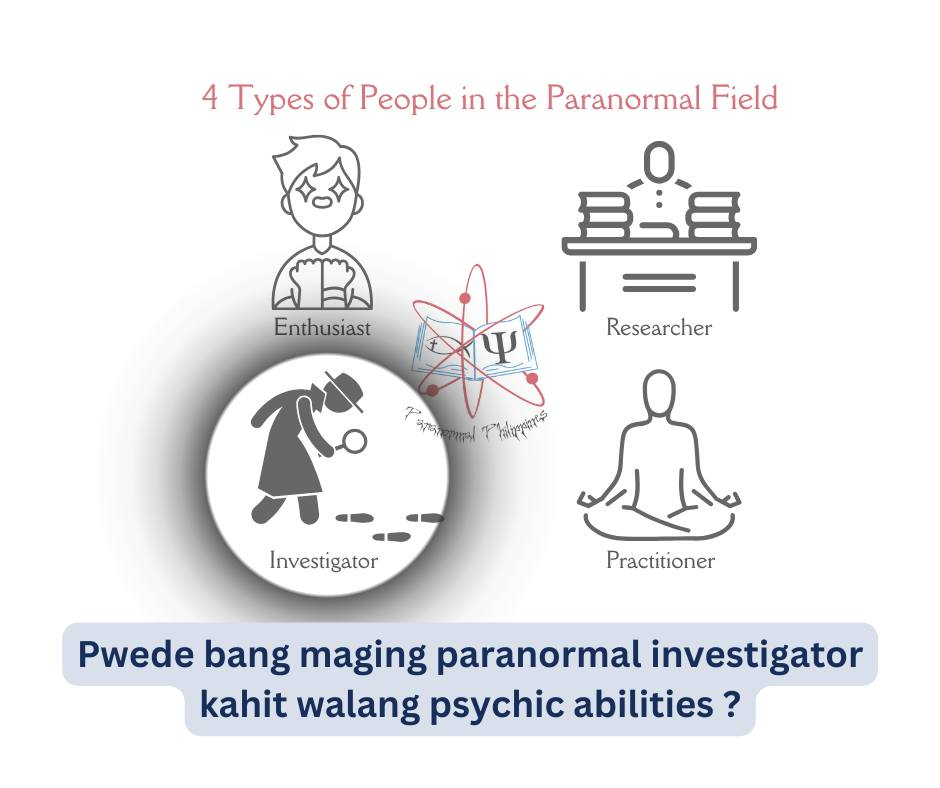Is the Paranormal Real?
 🏠 |
🧭 |
🏠 |
🧭 |
Is the paranormal real? It’s a question that draws strong reactions. Deniers often say no and mention the lack of scientific proof, psychological explanations, instances of fraud, etc. Yet others argue that human experience is far more complex than what conventional science can currently explain.
This article offers a balanced view: exploring why doubt exists, while also presenting thoughtful counterpoints that invite curiosity and deeper reflection.
1. “There’s no scientific proof.”
Denier's View: Paranormal claims lack repeatable, empirical evidence, making them unfit for scientific validation.
Counterpoint: Science is evolving. Just because something can’t yet be measured doesn’t mean it’s not real. Some phenomena may lie beyond current tools and frameworks.
2. “There are logical explanations for everything.”
Denier's View: Misinterpretations, illusions, and natural causes can explain most paranormal reports.
Counterpoint: While many cases have logical explanations, some do not fit neatly into those boxes. We shouldn't dismiss genuine anomalies simply because they’re inconvenient.
3. “It’s all in your head.”
Denier's View: Cognitive biases, such as pattern recognition and confirmation bias, trick people into believing what they want to see.
Counterpoint: Human perception is indeed flawed, but it's also powerful. Not every unusual experience is a hallucination or mistake. Overgeneralizing undermines valid personal insights.
4. “Psychology explains it all.”
Denier's View: Experiences like ghost sightings can be linked to sleep paralysis, hallucinations, or stress.
Counterpoint: These may explain some cases but not all. Thousands of reports worldwide involve consistent details that stretch beyond individual psychology.
5. “Paranormal claims are full of hoaxes.”
Denier's View: Fraud and deception have long tainted the field, damaging its credibility.
Counterpoint: Yes, fraud exists, but so do sincere witnesses. A few bad apples shouldn't spoil the possibility of real phenomena.
6. “People only notice what fits their beliefs.”
Denier's View: Believers selectively focus on confirming evidence, ignoring what contradicts their views.
Counterpoint: This is a human tendency and not limited to believers. Sincere investigation requires looking at each case with fairness, not just assumptions.
7. “Culture creates paranormal beliefs.”
Denier's View: Media, folklore, and society shape our expectations and interpretations.
Counterpoint: Culture shapes how we describe experiences, but not necessarily whether those experiences are real or not. The core events might be universal; interpretations just vary.
8. “The stories don’t match.”
Denier's View: Inconsistent reports of ghosts, aliens, or entities suggest they’re made up.
Counterpoint: Human memory and perception are naturally variable. Even eyewitnesses to the same event often recall different things. Inconsistency doesn’t equal falsehood.
9. “Occam’s Razor favors simple explanations.”
Denier's View: The simplest explanation (it is not paranormal) is more likely to be true.
Counterpoint: Simplicity doesn’t guarantee truth. Some phenomena may require complex explanations we haven’t yet discovered.
Skepticism is healthy, but so is wonder. Just because something is difficult to study doesn’t mean it should be dismissed. Paranormal experiences often occur at the edges of what we understand.
Let’s not shrink our ideas of reality to fit our understanding. Let’s stretch our understanding to meet reality as closely as possible.
- C.E.
More info: Gullibility Vs. Skepticism Vs. Denial





Comments
Post a Comment